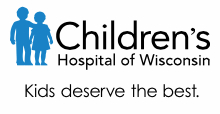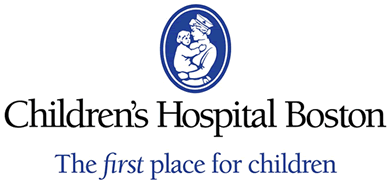Safety and Effectiveness of Granulocyte Transfusions in Resolving Infection in People With Neutropenia (The RING Study)
| Status: | Completed |
|---|---|
| Conditions: | Infectious Disease, Hematology |
| Therapuetic Areas: | Hematology, Immunology / Infectious Diseases |
| Healthy: | No |
| Age Range: | Any |
| Updated: | 3/30/2013 |
| Start Date: | April 2008 |
| End Date: | June 2013 |
| Contact: | Susan F. Assmann, PhD |
| Email: | sassmann@neriscience.com |
| Phone: | 617-923-7747 |
High Dose Granulocyte Transfusions for the Treatment of Infection in Neutropenia: The RING Study (Resolving Infection in Neutropenia With Granulocytes)
Neutropenia, a condition characterized by an abnormally low number of infection-fighting
white blood cells called neutrophils, commonly develops in people who have undergone
chemotherapy or hematopoietic stem cell (HSC) transplantation. The severely reduced immunity
of those with neutropenia can put them at risk of entry of life-threatening infections,
making the implementation of treatments that increase white blood cell numbers important.
Several studies have shown that the transfusion of donor granulocytes, a type of white blood
cell that includes neutrophils, is effective in promoting the recovery of adequate numbers
of granulocytes. However, granulocyte transfusions can cause side effects, and it is not
known whether the success of the therapy outweighs the health risks of the side effects.
This study will evaluate the safety and effectiveness of granulocyte transfusions in
treating people with a bacterial or fungal infection during neutropenia.
Thousands of people each year are hospitalized for neutropenia, which continues to cause
substantial morbidity and mortality for those affected. Neutropenia is primarily caused by
chemotherapy and various other cancer treatments, such as radiation therapy, biotherapy, and
HSC transplantation. Signs and symptoms of neutropenia may include high fever, chills, sore
throat, and diarrhea. In neutropenia, the number of neutrophils, a type of granulocyte, is
greatly reduced, weakening the body's immune system and increasing the risk of infection.
Therefore, a method to provide adequate numbers of functional granulocytes to people with
neutropenia could be of greatest benefit for recovery. Administration of a combination of
two drugs, granulocyte colony-stimulating factor (G-CSF) and dexamethasone, has been show to
stimulate the body to produce a large number of granulocytes. Granulocyte transfusions
obtained from donors who have received these two drugs may help people with low white blood
cell counts fight infections until their own white blood cell counts recover. However, it is
not clear whether the benefits of granulocyte transfusions outweigh the risks of side
effects. This study will compare the safety and effectiveness of granulocyte transfusions
with standard antimicrobial therapy versus the safety and effectiveness of standard
antimicrobial therapy alone in increasing granulocyte numbers and in improving survival
rates in people with bacterial or fungal infection during neutropenia.
Participation in the research portion of this study will last about 3 months. All
participants who were not previously receiving treatment with standard antimicrobial therapy
will begin therapy immediately upon study entry. Participants will then be assigned randomly
to receive either granulocyte transfusion plus continued antimicrobial therapy or continued
antimicrobial therapy alone. All participants will be monitored for a maximum of 42 days,
during which they will provide information on medical history and ongoing status of
antimicrobial therapy. Daily blood samples to measure white blood cell count will be
obtained from participants until samples show that participants are making their own
granulocytes. Samples will then be collected weekly until Day 42. There may be additional
blood draws depending on the type of infection present in participants.
Granulocyte transfusions will be given daily during the 42-day treatment period, depending
on granulocyte donor availability. Blood counts will be checked immediately before and after
each transfusion to measure granulocyte levels. Transfusions will be stopped if participants
start making their own granulocytes, experience serious side effects, or show a reduction in
infection. At Month 3 after study entry, follow-up information will be collected about all
participants' health status through reviewing their medical records and contacting their
physicians.
Participation for granulocyte donors will last 1 week from the time of donation. Community
donors may provide more than one granulocyte donation, but no more than one donation every 3
days. Frequency of donation from a family member will be according to local blood bank
criteria with approval from a blood bank physician. Both community donors and family donors
are limited to eight donations each year. Twelve hours before each donation, participants
will be injected with Neupogen, which contains G-CSF, and they will take one dose of
dexamethasone by mouth. Participants will then undergo a blood draw, followed by a procedure
using an apheresis machine for granulocyte collection. The procedure will last 3 to 4 hours
and will involve the drawing of blood from each arm, the separation of granulocytes from the
red blood cells and plasma in the machine, and the return of the red blood cells and plasma
to the participants.
Inclusion Criteria:
- Severe neutropenia (Absolute Neutrophil Count < 500/mm^3) due to marrow failure
caused by underlying disease or therapy
- Must have one of the following: fungemia; bacteremia; proven or presumptive invasive
tissue bacterial infection; or proven, probable, or presumptive invasive fungal
infection
Exclusion Criteria:
- Unlikely to survive 5 days
- Evidence that patient will not be neutropenic at least 5 days
- Previously enrolled in this study
We found this trial at
18
sites
University of Miami A private research university with more than 15,000 students from around the...
Click here to add this to my saved trials
Children's Hospital - Boston Boston Children's Hospital is a 395-bed comprehensive center for pediatric health...
Click here to add this to my saved trials
Montefiore Medical Center As the academic medical center and University Hospital for Albert Einstein College...
Click here to add this to my saved trials
Univ of Minnesota With a flagship campus in the heart of the Twin Cities, and...
Click here to add this to my saved trials
Click here to add this to my saved trials
Johns Hopkins Hospital Patients are the focus of everything we do at The Johns Hopkins...
Click here to add this to my saved trials
Click here to add this to my saved trials
Click here to add this to my saved trials
University of Iowa Hospitals and Clinics University of Iowa Hospitals and Clinics—recognized as one of...
Click here to add this to my saved trials
University of Wisconsin-Madison In achievement and prestige, the University of Wisconsin-Madison has long been recognized...
Click here to add this to my saved trials
Click here to add this to my saved trials
9000 W Wisconsin Ave #270
Milwaukee, Wisconsin 53226
Milwaukee, Wisconsin 53226
(414) 266-2000

Children's Hospital of Wisconsin Nothing matters more than our children. At Children's Hospital of Wisconsin,...
Click here to add this to my saved trials
Weill Medical College of Cornell University Founded in 1898, and affiliated with what is now...
Click here to add this to my saved trials
940 NE 13th St
Oklahoma City, Oklahoma 73190
Oklahoma City, Oklahoma 73190
(405) 271-6458

University of Oklahoma Health Sciences Center The OU Health Sciences Center is composed of seven...
Click here to add this to my saved trials
Click here to add this to my saved trials
Univ of Pennsylvania Penn has a long and proud tradition of intellectual rigor and pursuit...
Click here to add this to my saved trials
Click here to add this to my saved trials
University of Washington Medical Center University of Washington Medical Center is one of the nation's...
Click here to add this to my saved trials









